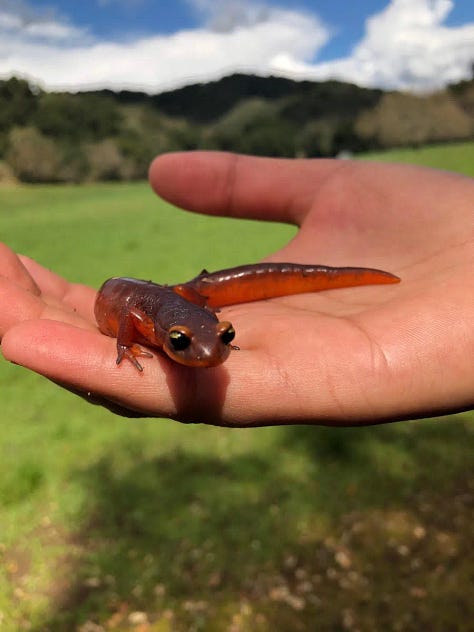Tucson feels like a furnace in August. It feels like someone is pressing a hot iron to the sky and pushing it down…maybe that’s why the southwest has so much flat land. I kid. Clair and I were walking home from her high school classes earlier this week and the air felt oppressive. We were silently moving along the sidewalk, block by block, making occasional small talk and trying to find shade when I realized she was unusually quiet, and it probably wasn’t because of the heat. I started to become a bit concerned about the silence and asked her what she was thinking about.
“Music.”
She said, “Notes. Sidewalk.” She said it mechanically as though her mind was occupied elsewhere.
“What?” I countered, “Explain some more.”
And she began hopping a bit over the sidewalk cracks, saying, “One-iota, two-iota, three-iota…I’m singing the sidewalk rhythm…every sidewalk has its own beat.”
And there it was. Me unnecessarily worrying that something must be wrong because she was quiet and instead, she was making music with the city streets. All that goodness happening in the solitude of her mind. There is a metaphor in there but I’m not very good at those so I’ll just say that God is very generous with His gifts and goodness and that we can rest in Him. It was a good reminder for the beginning of our week.
Happy almost September, y’all.
On The CPQ Blog



Grand Conversation Issue
Our Grand Conversation issue is beginning to show up in mailboxes!
Snap a picture and tag us on Instagram when you get yours!
Did you miss the pre-order period? You can find back issues available in the shop!
Up Next: Habit of Reading
Did you know Charlotte Mason mentions the love of reading only once in her volumes? She mentions the habit of reading 19 times. We’ll explore what that means for us as home educators, for the children who struggle with reading or those who don’t love it, and be encouraged to persevere with our families towards a delightful reading life.
Are you subscribed?
**The preorder list for our Habit of Reading issue closes on August 31st!
Blast from the Past
We have back issues of Year 4 of CPQ still available in the shop!
Maybe you’d be interested in our Balance issue:
“Today, many Mason educators cling to old books because of the engaging narrative and beautiful language. Some even try to use the exact books that Mason used. However, it does not seem that the people who knew Mason best, who worked alongside her in her mission for almost 30 years, showed much hesitation in removing offending books from the curriculum, even though they were penned by Mason herself. Mrs. Franklin’s letter to Lady Cassal shows how well they understood that they owed a higher loyalty to their living students than to their deceased mentor. The Zeitgeist had changed, and the P.U.S. has to make adjustments.”
Written by Dr. Jen Spencer
Maybe you’d be interested in our Ordered Affections issue:
“Knowing that our children are already equipped for love and fair play lightens our task as parents, and allows us to direct our efforts more effectively. We don’t have to create those feelings; we simply have to foster the relationships that will enlist those feelings in the service of others. Our great task of developing the moral character of our children turns upon this point. Charlotte Mason asked, “Does, then, the whole of moral training resolve itself into the culture of the affections?” and then answers her own question with a nod: “Even so.” (V.5, p. 208)
Written by Karen Glass
Maybe you’d be interested in our Science of Nature issue:
“Our culture’s educational ideals tend toward utilitarianism and the pursuit of achievements; “academic rigor” is prized, but often what is meant by it is merely early acquisition of a standard set of information. To dedicate time to nature study is countercultural; it is a gloriously inefficient and wildly unstandardized way of learning science because it has to do with relationships, not data points. When we prioritize nature study we choose to invest the early years of education in nurturing the child’s relationship with the natural world, moreso than instructing him about it. We make space and time for wonder, seeing it rightly as the foundational discipline of education.
Written by Caitlyn Beauchamp
Or maybe you’d be interested in our Art of Music issue:
“Getting technical for just a moment, why does a song often end on a tonic triad and not on a Picardy third? Why do we like to feel a sense of resolution at the end of a piece? Why are humans so averse to the sound of the tritone? (It was historically called the devil’s interval and has been avoided for recorded musical history.) Why does a tritone feel unsettling if music is just a collection of random, but equal sounds, represented by little black marks on a page? A well-written piece of music, be it a nursery rhyme tune or an entire opera, works within the forms and rules of music. Some twentieth-century composers toyed with the idea of breaking these rules of composition. The result is interesting, but not what most people would call beautiful or harmonious. The most complicated piece is only configurations of twelve possible notes and composers still have not run out of ideas. This fills me with awe.”
Written by Heather Bunting
On the Gram
Our most popular reel this month was inspired by a true story. Did you see it?
We also shared this quote from Miss Mason this month:
“I do not undervalue the Divine Grace—far otherwise; but we do not always make enough of the fact that Divine grace is exerted on the lines of enlightened human effort; that the parent, for instance, who takes the trouble to understand what he is about in educating his child, deserves, and assuredly gets, support from above.”
We thought that might make a nice printable for our readership, so we made one for you. Enjoy!
Get To Know The Editors
What’s Cara…
Reading: Esperanza Rising
Making (and remaking): an Airbnb studio apartment
Eating: Culver’s frozen custard
Watching: Rizzoli and Isles
Learning: About tension and compression and how buildings are built
Drinking: Boba tea
Cooking: Take-out wings from down the street
What’s Mariah…
Reading: A Lady’s Life in the Rocky Mountains and Praying Like Monks, Living Like Fools
Listening to: Sarah Sparks—I love her album Into the Lantern Waste
Thinking about: too much, really.
Cooking: Stuffed sopapillas and green chili tonight!
Watching: Pati’s Mexican Table
Learning: how to be a “guide, philosopher, and friend” to my young adult in today’s world—we talk a lot about boundaries and the economy.
Drinking: Some mango-flavored sparkling water
What’s Sarah…
Reading: People of the Book by Geraldine Brooks and Ivanhoe
Thinking about: the lifestyle changes needed to begin the process of taking care of parents, while still raising children, and taking better care of ourselves so as not to be a care burden for our children as long as possible.
Eating: Trader Joe’s chili and lime rolled tortilla chips
Watching: American Pickers
Making (and remaking): school timetables. But I think I’m done. Now we just roll with what we’ve got. And at week 3, I think it’s good.
Cooking: Chicken Shawarma (also from Trader Joe’s) for wraps, with mint, feta, onions, and tzatziki
Learning: Color theory (using Bestowing the Brush’s course to explore gray, brown, and black this term).
Drinking: Starbucks pink drink with chocolate cold foam
What Say You?
We’d love to get your feedback about CPQ!
Please take a few minutes to fill out our survey.


